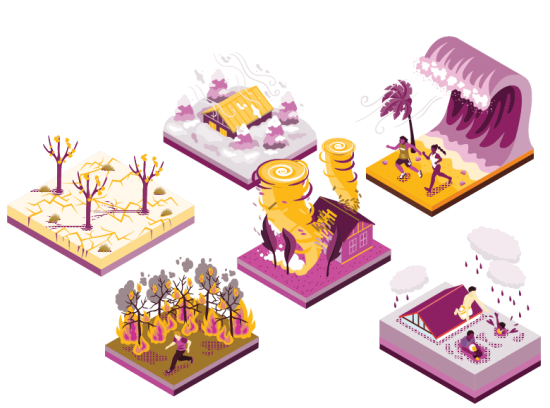Is Climate Change Really Here?
College of Science and Mathematics

As geologists, we study earth systems involving climate over vast periods that can well exceed the average lifespan of humans’ lifetime. Earth history spans nearly 4.6 billion years and has been evolving ever since. Thus the answer to if climate change is really here is — yes.
It has always been here and operates at different temporal, spatial scales and cycles and these events are often recorded/etched into the geological record.
A better question to ask is if a climate change crisis is here; are humans intensifying weather and climate events?
Climate is the long-term average of weather. A single hot day does not necessarily mean climate warming or climate cooling on a cold/snowy day. It is the average of these temperatures and other weather data over time for a given location. Some people misuse weather and climate terms interchangeably.
A climate crisis can be defined as any climate-related event(s) that can immediately or bring long-term harm to humans and other living organisms. These events can take many forms, from species extinctions, invasive species migration, floods, droughts, wildfires and sea-level rise to mention a few — and have been well documented. Additionally, some of these studies suggest they are increasing in frequency and intensity.
Recent studies on black carbon in ice cores have found its presence in pre-industrial revolution and suggest humans already had some impact on the atmosphere, likely due to agricultural processes before then. Post-industrial revolution, the amount of black carbon in the cores dramatically increased. Without question, humans impact both weather and climate and have changed the face of the planet. As the human population increases, biocapacity decreases along with Earth’s carrying capacity as we use up resources and disrupt Earth’s evolving climate.
There are signs here along the Georgia coast of the impending climate crisis, and we have limited time to plan, change and adapt. The warning is lapping on our shores as the sea reaches further inland and the tide is flooding more frequently in addition to other processes such as habitat change/degradation. The danger is to ignore the warning signs around us and take for granted that some climate-related processes like sea-level rise are slow relative to others and not as noticeable over our short lifetimes.
Climate is composed of interconnected processes operating over different spaces and times. Modifying one or more climate-related processes could have dire consequences –– even if one can not directly see the negative impacts of human activity on climate and living organisms in a day or years on the planet we share.
— Chester W. Jackson Jr., Ph.D., Associate Professor of Geology,
Department of Geology & Geography
